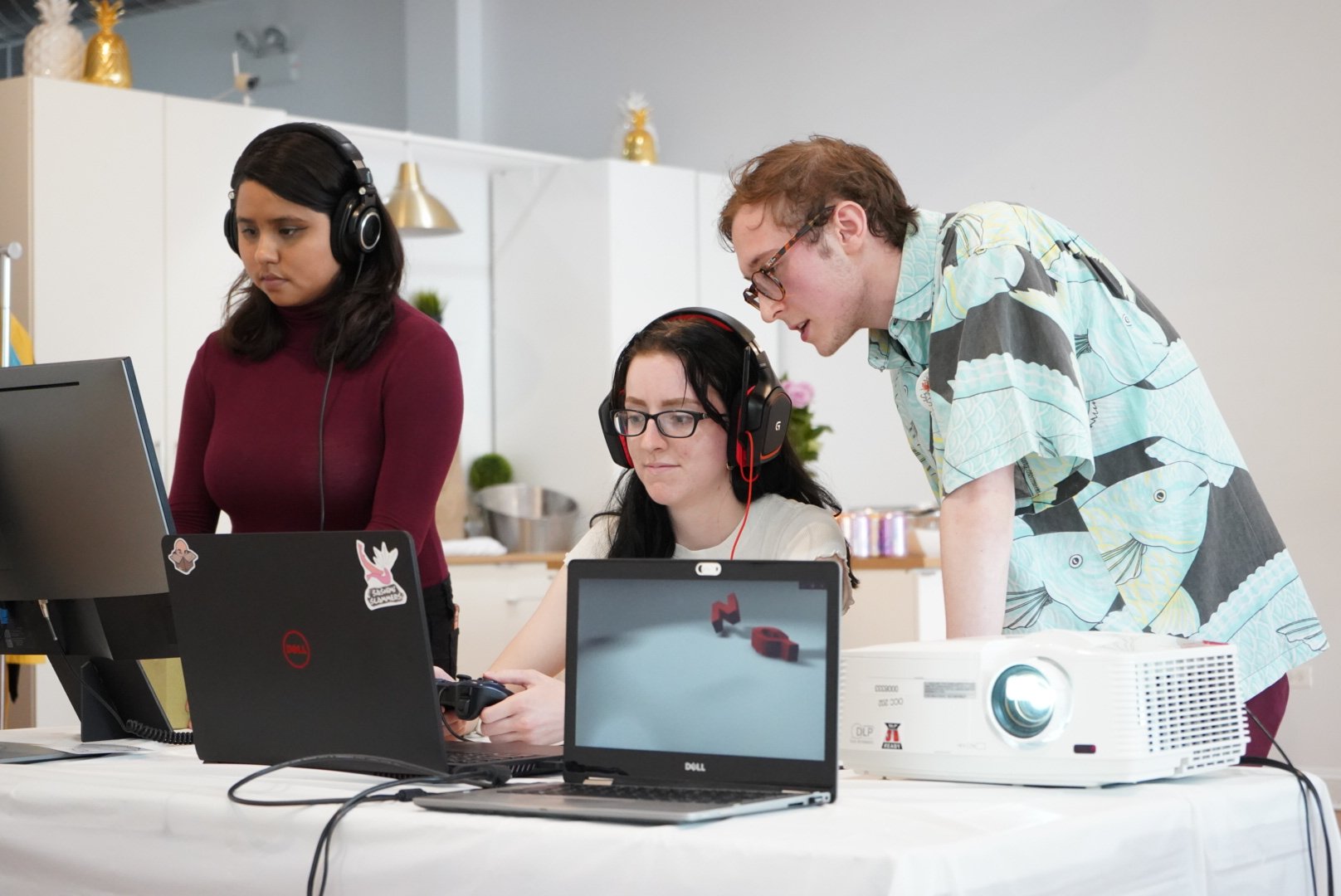 DePaul’s game design programs prepare students for careers in the industry. (DePaul University/Stephanie Nikolas)
DePaul’s game design programs prepare students for careers in the industry. (DePaul University/Stephanie Nikolas) Game design programs in DePaul’s College of Computing and Digital Media are among the top in the U.S., according to new rankings released this spring. Academic excellence, the depth of faculty experience, and career opportunities helped DePaul rise in the rankings.
The Princeton Review places DePaul among the Top 50 Undergraduate Schools for Game Design in 2022, capturing the 39th spot and rising from 41st place last year. DePaul is also one of the Top 25 Graduate Schools for Game Design, securing the 25th spot on the list. The Princeton Review surveys administrators at 150 institutions across the U.S. and abroad, collecting information about academics, faculty, technology and career prospects.
Animation Career Review ranks DePaul’s game design programs 14th nationally and number one in the Midwest. Reviewers also recognize DePaul for having the fifth best game-related MFA in the U.S. Academic reputation, the depth and breadth of the program and employment data are among the criteria for this ranking.
While these rankings focus on game design, game development is a hub that unites many disciplines throughout CDM, explains Brian Schrank, an associate professor and chair of the game design program. “We bring designers, artists and programmers together right away, in their first year,” Schrank says. “Our students learn how to work together effectively, speak each other’s language and appreciate each other’s skill sets. Supporting a collaborative, cross-disciplinary model of learning matches how game studios approach development as well.”
DePaul game development faculty have diverse and professional backgrounds across many fields including computer science, the game industry, animation industry, fine arts and game studies.
“Our faculty are passionate about games and the future of the medium. We value pushing the boundaries in experimental ways as well as mastering the fundamentals,” says Schrank.
DePaul’s game programs offer students the concepts and connections they need to move into their career of choice. DePaul students learn how to use computers effectively and creatively, which is key to success in professional game development processes and pipelines. Courses such as Playgramming and Practical Scripting for Games teach concepts and techniques of computation. With these concepts, students learn to prototype their ideas, test them, and iterate upon them to continually improve their work.
Students at DePaul have access to the latest technologies used to develop games at the frontier of the field. This includes the latest hardware and software, augmented reality and virtual reality equipment, 3D printers, stop-motion animation studios, editing studios, motion capture labs and much more. The new Jarvis Student Center for Innovation and Collaboration will host space and resources for this hands-on work. The center will also connect students with industry professionals, creators and experts-in-residence.
Chicago is home to dozens of game studios that employ DePaul alumni, and the alumni network of game development spans the globe. “DePaul game students have an incredible range of opportunities to develop skills and build their professional portfolios,” Schrank says.
Learn more about game design and development at DePaul. Video below by Benjamin Kumming.